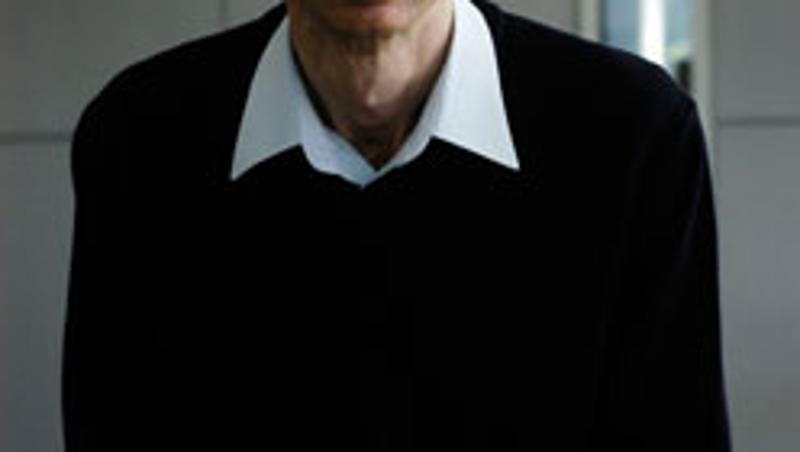
More Australians trust the country's army than its churches, according to a new analysis of trust trends by a leading political scientist from the Queensland University of Technology.
Professor Clive Bean said the first major study of social attitudes since the Howard Government came to power a decade ago showed Australians trusted each other as much as they previously had, but there had been big changes in how much they trusted other key sectors of society.
The defence forces enjoy 82% confidence (up 14% since 1995), but churches are losing Australians' trust, with just 35% expressing confidence (down 8% since 1995).
Major Australian companies are faring even worse, dropping 17% in the public's estimation, from 59% to 42%.
And when it comes to trusting each other, the study found the most trusting Australians are middle-class, educated city-dwellers.
Professor Bean's analysis of survey answers from more than 4000 Australians regarding trust issues is contained in a chapter of a new book on the Australian Survey of Social Attitudes - Australian Social Attitudes: The First Report. The book contains analyses on a variety of topics from leading experts across the country.
"The most disturbing finding about confidence in institutions is the sharp decline in public confidence in major Australian companies, a trend evident for 20 years and which may not yet have bottomed out," Professor Bean said.
"Misdemeanours of high-flying corporate figures, which may have provoked this downturn in public sentiment, do little to bolster the maintenance and regeneration of social capital in Australia."
Professor Bean said the defence forces' top ranking could be partly a reaction to the current international climate.
"This support may reflect a response to the threat of terrorism in the new global environment," he said.
The national survey measured trust levels by asking people how much confidence they had in 12 major organisations. The levels of confidence inspired (expressed by percentage of people) - are:
The defence forces - 82% great deal/quite a lot confidence, 18% little or no confidence
The police - 72% great deal/quite a lot confidence, 28% little or no confidence
Australian Broadcasting Corporation (ABC) - 70% great deal/quite a lot confidence, 29% little or no confidence
Universities - 70% great deal/quite a lot confidence, 30% little or no confidence
Charities - 61% great deal/quite a lot confidence, 39% little or no confidence
Major Australian companies - 42% great deal/quite a lot confidence, 58% little or no confidence
Federal Parliament - 41% great deal/quite a lot confidence, 60% little or no confidence
Churches or religious institutions - 35% confidence, 65% little or no confidence
The public service - 32% confidence, 68% little or no confidence
Courts & the legal system - 29% great deal/quite a lot confidence, 71% little or no confidence
Unions - 28% great deal/quite a lot confidence, 72% little or no confidence
Banks & financial institutions - 26% great deal/quite a lot confidence, 74% little or no confidence
Professor Bean said the study also measured how much people trusted other people they came across in daily life.
He said Australians weren't losing trust in each other compared to previous years ... but that less than half of us thought most people could be trusted.
The researchers asked: Generally speaking, would you say that most people can be trusted or that you can't be too careful in dealing with people?
"Interestingly, the results varied depending on the age and education level of the respondent," Professor Bean said.
"In Australia, interpersonal trust appears to follow a life cycle pattern. The least trusting group is those aged 18 to 34. Trust then peaks in middle age and declines thereafter."
Professor Bean also examined Australians' trusting attitudes by gender, education, and social class.
He said there was not much difference between the sexes, but that men were inclined to be slightly more trusting than women (43% compared to 39%).
City dwellers were also more trusting than people who lived in the country, with 43% of urban residents saying they thought most people could be trusted, compared to 38% of rural residents displaying a similar level of trust.
"A much wider gap is evident between those with and without a university degree," Professor Bean said.
"Among respondents with fewer educational qualifications, 36% give a trusting response. But among the fifth of the sample who are university graduates, fully 61% express interpersonal trust.
"There are similar class differences, with respondents who identify as middle-class more likely to express trust (50%) than respondents who identify as working-class (30%)."
Media contacts:
- Professor Clive Bean, Head of QUT School of Humanities & Human Services, 07 3864 4512
- Mechelle Webb, QUT media officer, 07 3864 4494 or ml.webb@qut.edu.au


